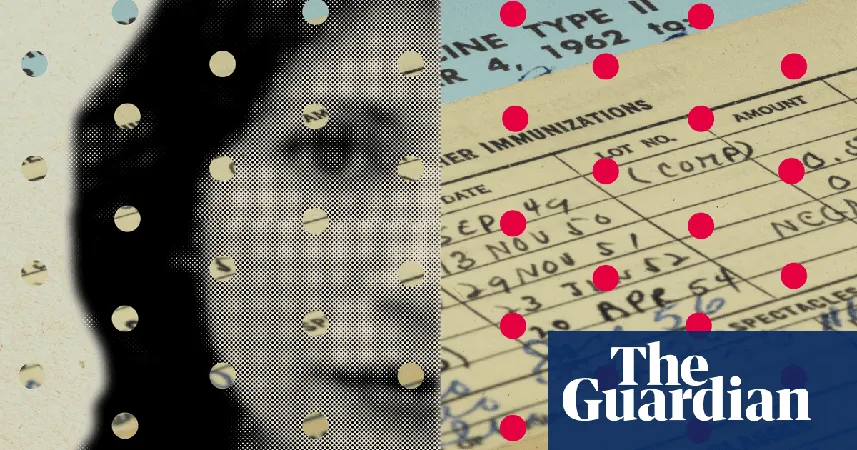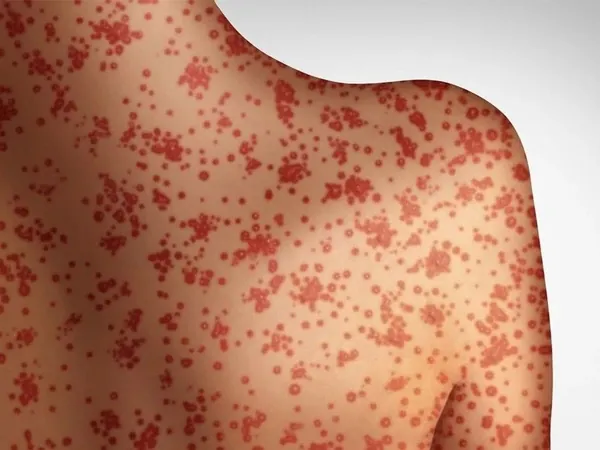
Unmasking Measles Immunity: What You Need to Know Before Heading Back to School
2025-04-09
Author: Sophie
The Surprising Truth About Childhood Vaccines
At 53, I was ready to tackle grad school but stumbled upon a surprising hurdle: I needed proof of my measles, mumps, and rubella (MMR) vaccinations. This requirement caught me off guard—especially since I thought my childhood vaccinations were sufficient.
Mom's Records and a Shocking Revelation
Armed with my mother’s handwritten documentation of my vaccinations, I approached my primary care physician for validation. She admired the old paperwork but informed me that it wasn’t official; thus, I needed a titer test to assess my immunity. A titer test? The concept was new to me.
What Is a Titer Test, and Why Does It Matter?
A titer test measures the level of antibodies in your blood. To my surprise, my results revealed adequate immunity to rubella but alarmingly low levels for mumps and measles. It hit me hard—despite receiving two measles vaccines during childhood, I wasn’t fully protected, and I now needed another MMR shot before stepping onto campus.
A Growing Concern: Measles Outbreaks on the Rise
With measles outbreaks escalating in the U.S. (over 600 reported by April 2025), I couldn't help but wonder about the implications for older adults like myself.
Are You at Risk if Vaccinated Between 1963 and 1967?
According to Dr. Scott Roberts, a Yale infection disease specialist, those who were vaccinated against measles between 1963 and 1967 may face increased risk. This is due to the use of both inactivated and live vaccines during that time; the inactivated form was less effective and discontinued in 1967. Many people, including myself, may have received this less potent vaccine, which could explain my low titer results.
What Should You Do?
If you suspect you received the inactivated vaccine or are unsure, experts recommend getting the MMR vaccine again. Dr. Aniruddha Hazra adds that there’s no harm in receiving the vaccine even if you believe you are fully immunized. While a titer test can confirm immunity, it often costs more than the vaccine itself.
Understanding Immunity: Is Low Titer a Cause for Alarm?
Dr. Robert Bednarczyk notes that a low titer doesn’t automatically mean you’ll contract the virus. Even if your detectable antibodies are low, your immune system likely retains memory cells, ready to produce antibodies against the virus if needed.
A Special Note for Those Born Before 1957
Before the measles vaccine was introduced, measles caused thousands of childhood deaths. If you were born before 1957, you’re assumed to have been exposed, which likely grants you lifelong immunity according to CDC recommendations.
One Shot or Two? The Confusion Around MMR Vaccines
The conversation around how many MMR doses you should have received is complex. Before 1989, only one dose was recommended for children, but subsequent guidelines advocated for a second dose to enhance immune response. Today, the CDC recommends two doses for children and suggests one or two for adults, particularly high-risk populations.
What About Immunity Over Time?
Recently, claims have emerged implying that vaccine-induced immunity wanes significantly with age. However, Dr. Hazra debunks this notion, asserting that if immunity truly deteriorated, we would see more measles cases among vaccinated individuals.
Side Effects of the MMR Vaccine: What to Expect
Adults generally experience the same side effects as children, including fever and soreness at the injection site. While the risks are low, they are not nonexistent; severe complications can arise from the disease itself, far outweighing the vaccine's minor side effects.
Seeking Guidance on Your Vaccination Status
If you're unsure about your vaccine status, consult your healthcare provider regarding an MMR vaccine or titer test. A robust population immunity is crucial for safeguarding the health of everyone.









 Brasil (PT)
Brasil (PT)
 Canada (EN)
Canada (EN)
 Chile (ES)
Chile (ES)
 Česko (CS)
Česko (CS)
 대한민국 (KO)
대한민국 (KO)
 España (ES)
España (ES)
 France (FR)
France (FR)
 Hong Kong (EN)
Hong Kong (EN)
 Italia (IT)
Italia (IT)
 日本 (JA)
日本 (JA)
 Magyarország (HU)
Magyarország (HU)
 Norge (NO)
Norge (NO)
 Polska (PL)
Polska (PL)
 Schweiz (DE)
Schweiz (DE)
 Singapore (EN)
Singapore (EN)
 Sverige (SV)
Sverige (SV)
 Suomi (FI)
Suomi (FI)
 Türkiye (TR)
Türkiye (TR)
 الإمارات العربية المتحدة (AR)
الإمارات العربية المتحدة (AR)